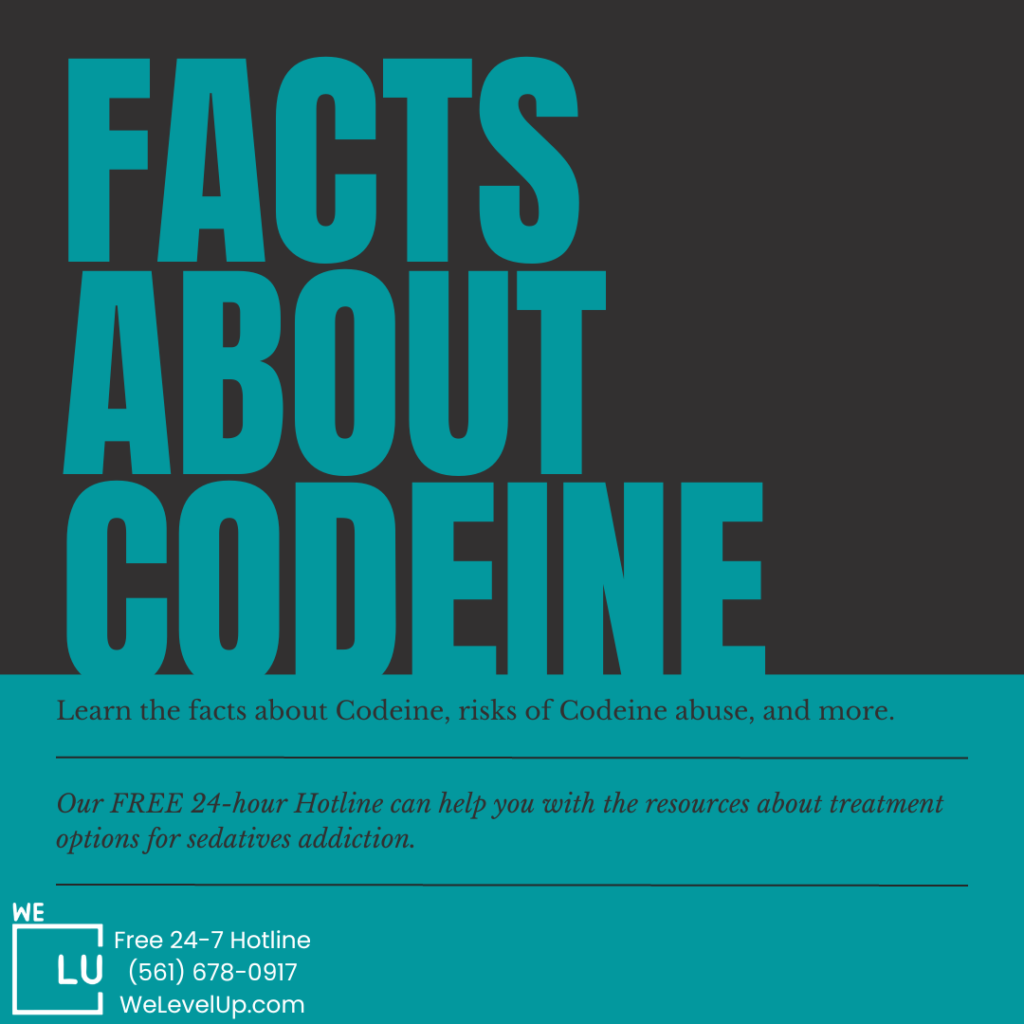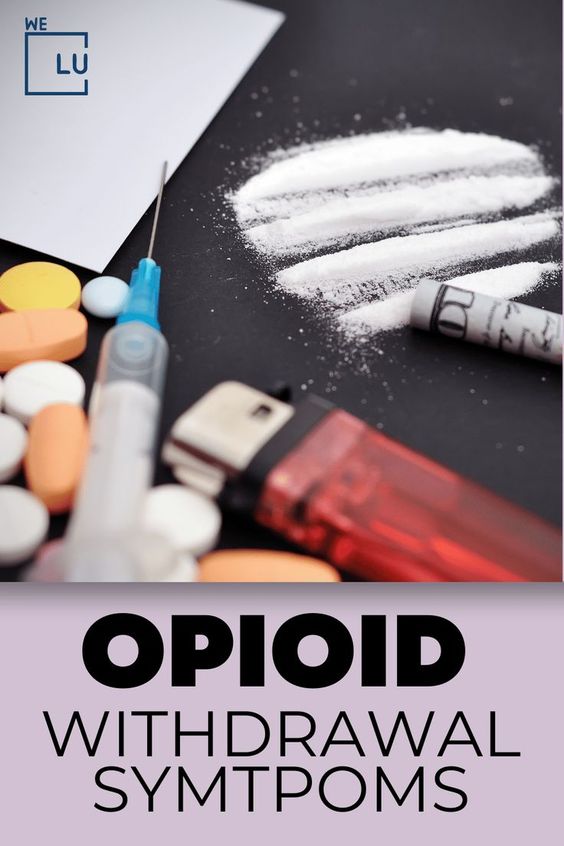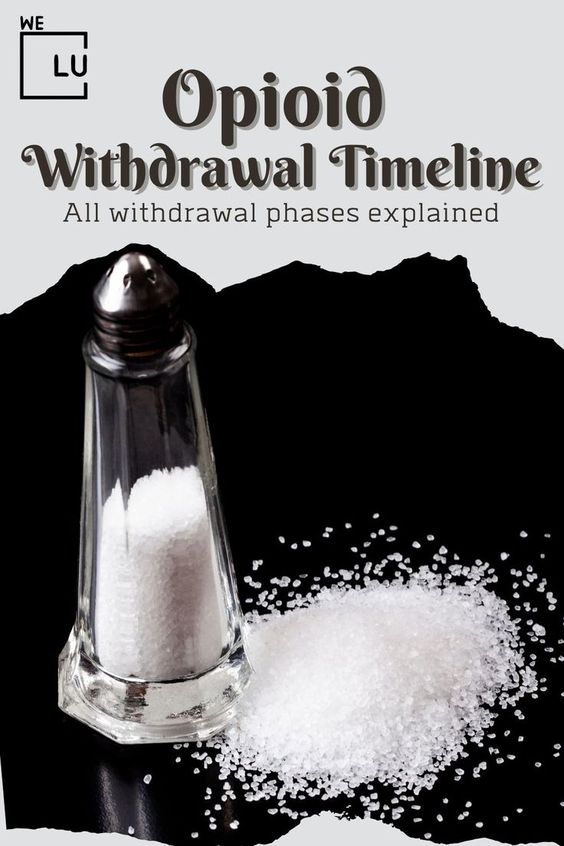How Long Does Codeine Stay In Your System? How Long Does Codeine Stay In Your Urine?
Codeine usually stays in your system for about two to five days, but this time frame can vary based on your individual physical characteristics, such as age, weight, and metabolic rate. It is important to note that codeine can be detected in your system for longer if it is regularly taken in high doses over extended periods of time.
The amount of time codeine might stay in your urine typically ranges from two to four days, but can be up to seven days in some cases. This can vary depending on many factors, including the dose taken, frequency of use, and the amount of time that has passed since your last dose.
Codeine can affect the central nervous system, particularly in areas affecting sensation and pain. When codeine is taken or metabolized into its active form, it interacts with opiate receptors in the brain to produce a calming and pain-relieving effect. However, long-term use of the medication can lead to physical dependence, making it difficult to quit taking codeine and resulting in painful withdrawal symptoms.
What Is Codeine?
Codeine is a member of the opioid family of drugs derived from the opium poppy and synthesized in a laboratory to create an analgesic drug commonly prescribed for chronic pain, off-label use in cough, restless leg syndrome, and sometimes diarrhea. [1] Worried about how long does codeine stay in your system? Codeine is detected in screening tests for drugs of misuse for up to three days. It is essential to learn its risks and effects.
Codeine is considered a narcotic, and it does carry the potential to cause addiction. However, it is not typically considered as dangerous as other opiates such as Hydrocodone or Oxycodone. What happens if you mix Codeine and alcohol? Mixing codeine with alcohol impairs the medication’s desired impact, often leading people to drink or ingest more substances to achieve a similar high. This increase can lead to an opioid overdose, alcohol poisoning, or both.
Codeine is also available in combination with acetaminophen (Capital and Codeine, Tylenol with Codeine), aspirin, carisoprodol, and promethazine and as an ingredient in many coughs and cold medications. Codeine (alone or in combination with other medicines) comes as a tablet, a capsule, and a solution (liquid) to take by mouth. It usually takes 4 to 6 hours as needed. [2]
How Long Does Codeine Stay In Your System?
How long does codeine stay in your system, and why is it a controlled substance? Codeine is the most commonly taken opioid medication. It is at the center of the opioid addiction crisis in the United States and thus is highly regulated. Its main indication is pain and cough. Chronic pain, defined by the International Association for the Study of Pain, is pain persisting beyond the standard tissue healing time, which is three months. The most prevalent causes of non-cancer chronic pain include back pain, fibromyalgia, osteoarthritis, and headache.

How Long Does Codeine Stay in Your System? & How Long Does it Take to Feel the Effects?
As with any prescription drug, you must be careful about adhering to recommended dosages of codeine (either as prescription pain relief tablets or cough syrup). Codeine is an opiate. Therefore, it’s possible to become disoriented or drowsy without intending to. drowsy. How long does codeine stay in the system, and what are the effects? This drug’s pain relief and feel-good effects usually start 30 to 45 minutes after taking the substance. If you feel highly lightheaded or sleepy after taking codeine, that can be a sign you took too much, so it’s essential to consult your doctor immediately about the dosage.
Another rule to follow is to avoid alcohol while you are taking codeine. Mixing any opioid drug with alcohol is dangerous. The effects like pleasurable feelings and lowered perception of pain are temporarily enhanced. Once the substance wears off, a person may compulsively seek the substance, leading to addiction. But how much codeine does it take to make you intoxicated? The amount of codeine needed to get you high varies depending on how much you take, your body weight, and how quickly your liver processes the medication.

Skip To:
Learn More:

Get Your Life Back
Find Hope & Recovery. Get Safe Comfortable Detox, Addiction Rehab & Dual Diagnosis High-Quality Care.
Hotline(844) 597-1011Codeine Drug Facts
Codeine Drug Test
Drug test Codeine options are typically done using urine or blood samples. These tests are usually done on a case-by-case basis, depending on an individual’s medical history. They may also be requested by employers to screen for drug use.
How long does codeine stay in your urine?
Does codeine show up in drug tests? Yes. Codeine can be detected in urine for up to 2-4 days after use, depending on individual factors such as body weight, age, and metabolism. Codeine can also be detected in blood tests for up to 24 hours after use.
Narcotic
It can relieve coughing and pain.
Controlled Substance
High potential for dependency and addiction. When consumed in high amounts or in combination with other substances, particularly alcohol or other illegal narcotics like heroin or cocaine, it can cause respiratory distress and even death.
Codeine Availability
Prescription only.
Codeine & Pregnancy
Consult a physician.
Codeine & Alcohol
Avoid. There may be very serious interactions.
Codeine Drug Class
Opioid.
Codeine is a type of opioid. It is used to relieve mild to moderate pain and treat coughing. It is only available with a prescription and can be taken in the form of a tablet, liquid, or injection. The effects of codeine can last up to four hours, depending on the dosage and individual. If taken in large doses, codeine can be highly addictive, which is why it’s important to take as prescribed.
Codeine Addiction Statistics
Codeine Drug Test Types
Codeine is a prescription opioid used to treat mild to moderate pain and cough suppression. It is a controlled substance and can pose a risk of abuse. Consequently, codeine is often tested for to detect its presence in a person’s system. Depending on the type of test administered, codeine can show up in urine, hair, blood, or saliva samples up to several days after the last dose.
Does codeine show up in a drug test?
Does Codeine show up on a drug test? Yes. Codeine can show up in a drug test. Depending on the type of test being used, codeine can show up in urine, hair, blood, or saliva samples. Codeine is often included in tests for opiate use.
How long does codeine stay in urine?
Codeine can be detected in urine for up to three days after the last dose. However, this timeline can vary depending on an individual’s metabolism and other factors.
Get Help. Get Better. Get Your Life Back.
Searching for Accredited Drug and Alcohol Rehab Centers Near You?
Even if you have failed previously and relapsed, or are in the middle of a difficult crisis, we stand ready to support you. Our trusted behavioral health specialists will not give up on you. When you feel ready or just want someone to speak to about therapy alternatives to change your life call us. Even if we cannot assist you, we will lead you to wherever you can get support. There is no obligation. Call our hotline today.
(844) 597-1011Top 3 How Long Does Codeine Stay in Your System? FAQs
-
How Long Does Tylenol With Codeine Stay In Your System?
A drug’s half-life is the amount of time it takes for its concentration to drop to half of what it was initially, or, to put it another way, the amount of time it takes for half of a dose to be removed from the body. The components of Tylenol have slightly varied half-lives:
-Codeine: Each Tylenol pill contains 30 mg of codeine. Compared to acetaminophen, codeine takes longer to leave the body. Codeine typically works in the body for four to six hours and has a half-life of 2.5 to three hours. Up to three days after consumption, codeine is still detectable in urine.
-
How Long Does Codeine Cough Syrup Stay In Your System?
For the majority of people, codeine can still be found in their urine up to 48 hours after their last dose. However, in habitual users, it can be apparent for as long as a week. After the last use, it can still be found in saliva 21 hours later. In hair follicle tests, it can be found for up to 10 weeks.
-
How Long Does Promethazine Codeine Stay In Your System?
The answer to the question, “how long does Promethazine with Codeine stay in your system?”, is that like many medications, codeine is metabolized by the liver upon ingestion. The plasma half-life of this drug is about 2.9 hours. The elimination of codeine is done mainly via the kidneys, which excrete approximately 90% of an oral dose within twenty-four hours. How long does codeine stay in your system, and can it be detected in drug tests? Healthcare providers can perform tests that can detect codeine for up to ten weeks.
How Is Codeine Broken Down in the Body? Codeine Metabolism
The liver transforms codeine into its metabolites, which are then released into the body. Approximately 50% to 70% of codeine is metabolized to codeine-6-glucuronide, 10-15% to norcodeine, and up to 15% to morphine. These metabolites, with the exception of morphine, are inactive, which means they don’t provide any unique pharmacological effects.
Urinary excretion of codeine and its metabolites is common. According to some sources, hydrocodone may also be a small metabolite of codeine. When present, this metabolite can have urine excretion levels up to 11% higher than those of excreted codeine.
Codeine and its metabolites can both be found using many urine tests. In addition to hydrocodone, various tests can find codeine, morphine, and norcodeine.
The half-life of codeine is 2.5 to 3 hours. The half-life is the period of time it takes for a person to eliminate half of a dose of codeine from their body.
First-class Facilities & Amenities
World-class High-Quality Addiction & Mental Health Rehabilitation Treatment
Rehab Centers TourRenowned Addiction Centers. Serene Private Facilities. Inpatient rehab programs vary.
Addiction Helpline(844) 597-1011Proven recovery success experience, backed by a Team w/ History of:
15+
Years of Unified Experience
100s
5-Star Reviews Across Our Centers
10K
Recovery Success Stories Across Our Network
- Low Patient to Therapist Ratio
- Onsite Medical Detox Center
- Comprehensive Dual-Diagnosis Treatment
- Complimentary Family & Alumni Programs
- Coaching, Recovery & Personal Development Events
Risks of Codeine Abuse
Codeine addiction is a chronic, relapsing illness in which a person uses codeine while knowing that doing so may affect their personal life and health. Repeated misuse of codeine can cause addiction. Abuse of codeine has long-term repercussions, including:
- Persistent constipation
- Reduced sex drive
- Abnormal menstruation
- Muscle spasms and stress
- Tolerance, in which a person needs more medication to achieve the same results
- Physical dependence
- When someone stops using, they may experience withdrawal symptoms, including cravings, nausea, headaches, aching muscles and joints, fever, chills, and sweating as well as restlessness, irritability, and sadness
Abusing codeine increases the danger of overdosing by making it more potent when combined with alcohol, sedatives, or other opioid drugs. Due to the drug’s effects on the central nervous system, which can result in cardiac and respiratory arrest, overdoses can be lethal.
Overdose warning signs and symptoms could include:
- Pupil constriction
- Extreme somnolence
- Stupor.
- Arms and legs that are sluggish
- Skin that is icy and clammy
- Cyanosis (bluish skin)
- Respiratory depression
- Respiration stopping
- Reduced blood pressure
- Slowed heartbeat
- Coronary arrest
- Coma
An overdose needs immediate medical intervention. If you notice any of these symptoms in a codeine user, call 911 right away. A person who has developed a codeine addiction will typically require expert treatment to recover. To stop using on your own can be quite challenging.
A monitored medical detox is advised for those who have been misusing codeine for a considerable amount of time. The individual might be prescribed drugs to lessen withdrawal symptoms, control urges, and get medical attention if any problems develop.
It is advised that patients continue their recovery efforts with the aid of a rehab program after detox. To assist persons in recovery by exploring the factors that contributed to and supported their prolonged abuse of codeine or other substances, many substance abuse treatment programs combine behavioral therapies with prescription pharmaceuticals. They also offer individual and group therapy sessions.
Codeine Half Life
How long is codeine in your system? Codeine half life is approximately two and a half to three hours. This means it takes about three hours for half a dose of codeine to be removed from your system. That said, various metabolites of codeine, such as morphine-3-glucuronide and codeine-6-glucuronide, have a longer half-life than codeine itself. It may take 24 hours to completely clear codeine and its metabolites from your system.
It’s important to understand how long the half life of codeine varies from person to person. There are a variety of factors that influence how long codeine stays in your system after your last dose.
- Age
- Weight
- Height
- Body mass
- Body fat
- Genetics
- Liver/kidney function

How Long Does Codeine Take To Work?
How long does codeine last in your system, and how it works? The pain relief and feel-good effects of codeine usually begin 30 to 45 minutes after taking the substance. At therapeutic doses, the analgesic effect peaks within 2 hours and persists between 4 and 6 hours.
How Long Does Codeine Stay In Your System?
Like many medications, codeine is metabolized by the liver upon ingestion. How long does Codeine stay in your system? The plasma half-life of this drug is about 2.9 hours. The elimination of codeine is done mainly via the kidneys, which excrete approximately 90% of an oral dose within twenty-four hours. How long does codeine stay in your system, and can it be detected in drug tests? Healthcare providers can perform tests that can detect codeine for up to ten weeks.
Codeine Drug Tests & Factors That Affect Detection Time
Does codeine show up on drug tests? yes. However, how long codeine is detectable in a person’s system can vary by person and situation. Several factors can affect this, including:
- The amount of the drug taken
- The individual’s metabolism
- Which formulation of codeine is consumed
- Length of codeine use
- Consumption of other medications or drugs
- Hydration and activity levels
- Age, liver and kidney health, and other physiological factors
For instance, massive doses or prolonged use may extend the amount of time the codeine is in your system. While exact times may vary, below are typical estimates for how long codeine is detectable.
How Long Does Codeine Stay In Saliva?
Codeine can appear in saliva drug tests in as few as 15 minutes. Typically, the drug will fall below testable levels in 1-2 days. However, several factors can impact sample collection for saliva drug tests, including low levels of oral fluid due to various physiological factors, including side effects.
How Long Does Codeine Stay In Your Hair?
Hair follicle testing can detect codeine for up to 10 weeks. The effectiveness of hair testing depends on hair length and the heaviness of drug use. However, unlike other testing methods, the drug can take 1 to 3 weeks to show up following initial ingestion.
How Long Does Codeine Stay In Your Blood?
Blood tests are used less frequently because they are more invasive and costly than urine tests. However, they may be used when someone cannot provide a urine sample or confirm an unexpected positive urine test result. how long does codeine stay in your system, and can it be detected? The window for detecting codeine on a blood test is only 24 hours.
How Long Does Codeine Stay In Urine?
As mentioned above, codeine is eliminated from the body relatively quickly by the kidneys. How long does Codein stay in your system? On average, the substance remains in urine for 1-2 days. Urine screenings are the most commonly used drug tests because they are relatively easy and cost-effective.

False Positive Codeine Abuse & Use Testing
Eating foods that contain poppy seeds can trigger a false-positive test result for opiates such as Codeine. Poppy seeds may contain trace amounts of codeine and morphine. While not enough to produce the same effects as prescription opiates, research has shown that consuming just one poppy seed muffin or two poppy seed bagels is enough to show up on a standard drug screen.
Additional analysis using methods such as mass spectroscopy can sometimes help differentiate between poppy seed consumption and proper opiate use. Certain medications can also trigger a false-positive test result on drug screening tests.
Verapamil (a calcium channel blocker used to treat hypertension), diphenhydramine (an antihistamine commonly found in cold and allergy medications), and doxylamine (an antihistamine often found in sleep aids and allergy medications) are all known to cause false positives for opiates on enzyme immunoassay (EIA) drug tests.
Let the testing laboratory know if you have eaten anything containing poppy seeds or are on any medications that might affect your test results.
World-class, Accredited, 5-Star Reviewed, Effective Addiction & Mental Health Programs. Complete Behavioral Health Inpatient Rehab, Detox plus Co-occuring Disorders Therapy.
CALL(844) 597-1011End the Addiction Pain. End the Emotional Rollercoaster. Get Your Life Back. Start Drug, Alcohol & Dual Diagnosis Mental Health Treatment Now. Get Free No-obligation Guidance by Substance Abuse Specialists Who Understand Addiction & Mental Health Recovery & Know How to Help.
Codeine Withdrawal Timeline
Days 1-2
How long does Codeine stay in your system? Heavy codeine users may experience peak symptoms during days three to five. For those mildly addicted, days three to four may include a decrease in symptoms. Common complaints during this time period include difficulty sleeping, headache, loss of appetite, shakiness, and lack of motivation.
Days 3-5
The first two days are usually the most challenging when coming off codeine, with withdrawal symptoms being the most intense. One can begin feeling some symptoms within 12 to 24 hours of the last dosage. Common symptoms include muscle and bone aches, shakiness, nausea, and flu-like symptoms in general. These first few days’ cravings may be high, so it is important to have support to keep from relapsing.
Day 6 and Beyond
Many people will be mostly symptom-free by day six. Some experience lingering symptoms like cravings, mood swings, fatigue, and insomnia. Heavy codeine users may contend with symptoms for several weeks, which is one reason they are encouraged to have professional therapeutic support that lasts long-term. For this reason, it is advised to go from codeine detox straight into a rehab center to continue your recovery efforts.
How Long To Get Codeine Out Of Your System?
Some things may slightly increase the rate that which codeine is metabolized and eliminated from the body. The first step is to stop taking the drug, although this may be challenging if you have become physically dependent. Always speak to your doctor before you quit taking a prescription containing codeine to avoid unpleasant opioid withdrawal symptoms. Your doctor may want to switch you to another type of pain reliever or to taper you off the medication slowly.
Once you have stopped taking your medication, ensure that you stay well-hydrated, eat healthily, and get regular physical activity. These lifestyle modifications may help speed up the rate at which the drug is cleared from your system. Searching “how long does codeine stay in your system?” and is there a detox program for codeine?
Codeine Detox
How long does codeine stay in your system, and what is codeine detox? Codeine detox is the process of overcoming physical dependence on codeine. During codeine detox, the client will undergo a series of medical interventions and support methods that will assist in the process of overcoming withdrawal symptoms. This process may take a few days or up to a few weeks depending on:
- How long has the user been addicted
- How severe the addiction is
- How much codeine is regularly used
- Whether there are co-occurring addictions
- The presence of other mental health conditions
How long does codeine take to get out of the system? Codeine withdrawal can take at least five to 10 days, though length and intensity depend on several factors mentioned above.
How Long Does It Take To Detox From Codeine?
Codeine detox is the first step to recovery. Suppose you seek the professional care of a residential detox facility. In that case, you can expect to receive medical treatment and support that will make the entire process of detoxifying much more accessible, more comfortable, and acceptable to you. Codeine detox can take about five days or ten days or more. For most people, detox will last between 5 and ten days, effectively overcoming all physical dependence factors associated with the addiction and preparing for long-term recovery and counseling.
After detox, it is recommended that people continue their recovery work with the help of a rehab program. Many substance rehabilitation programs use a combination of treatment medications and behavioral therapies. They provide individual and group therapy sessions to help those in recovery work through the reasons that led to and were supporting their continued misuse of codeine or other substances.

Codeine Detox Center
How long does codeine stay in your system, and what is the treatment for addiction? First and foremost, if you think that a loved one shows signs of addiction to prescription drugs like Codeine, you should first research the drug and addiction associated with it so that you can better understand what you or a loved one needs. This begs the question, “how long does Codeine stay in your system?” You must plan an intervention to provide your loved ones with options to battle their addiction in a safe and supportive environment. During this intervention, offer compassion and support instead of judgment. Lastly, show your support throughout the entire treatment process.
In addition, prolonged Codeine addiction can have severe physical and psychological effects, so seeking treatment as soon as possible is essential. Inpatient drug rehab offers intensive care that can help you promptly get through the early stages of withdrawal.
Medically-Assisted Detox
Medical detox is often considered the first stage of treatment. It will help you navigate the complicated withdrawal process but doesn’t address patterns of thought and behavior that contribute to drug use. Various treatment approaches and settings can help provide the ongoing support necessary to maintain long-term sobriety after you complete detox.
Cravings are very common during detox and can be challenging to overcome. This often leads to relapse. Constant medical care provided during inpatient drug rehab helps prevent relapse. Clinicians can provide the necessary medication and medical expertise to lessen cravings and the effects of withdrawals.
Psychotherapy
Several different modalities of psychotherapy have been used in the treatment of mental health disorders along with addiction, including:
- Cognitive Behavioral Therapy (CBT) – It is an effective treatment that involves changing both the patterns of negative thoughts and the behavioral routines which are affecting the daily life of the depressed person for various forms of depression.
- Dialectical Behavioral Therapy – It is a comprehensive mental health and substance abuse treatment program whose ultimate goal is to aid patients in their efforts to build a life worth living. The main goal of DBT is to help a person develop what is referred to as a “clear mind.”
- Person-Centered Therapy – This therapy is a strategy that allows and encourages clients to understand and resolve their concerns in a safe, supportive environment.
- Solution-Focused Therapy – It is an approach interested in solutions that can be quickly implemented with a simple first step leading to further positive consequences.

Dual Diagnosis Treatment
how long does codeine stay in your system, and can it affect your mental health? Unfortunately, drug abuse and mental health disorders often co-occur. In many cases, traumatic experiences can result in mental health disorders and substance abuse. Dual-diagnosis rehabilitation treats both of these issues together. The best approach for the treatment of dual diagnosis is an integrated system.
Medication-Assisted Treatments
Medication-Assisted Treatments (MAT) for substance use and mental health disorders are commonly used in conjunction with one another. This includes the use of medications and other medical procedures. During your rehab, the staff from your treatment facility will help you identify what caused your addiction and teach you skills that will help you change your behavior patterns and challenge the negative thoughts that led to your addiction. Sometimes, the pressures and problems in your life lead you to rely on substances to help you forget about them momentarily.
Searched For “Codeine How Long In System?” Or How To Detox “Codeine In System?”
Please, do not try to detox on your own. The detox process can be painful and difficult without medical assistance. However, getting through the detox process is crucial for continued treatment. We Level Up provide proper care with round-the-clock medical staff to assist your recovery medically. So, reclaim your life, and call us to speak with one of our treatment specialists. Our counselors know what you are going through and will answer any of your questions.
Experience Transformative Recovery at We Level Up Treatment Centers.
See our authentic success stories. Get inspired. Get the help you deserve.
Start a New Life
Begin with a free call to an addiction & behavioral health treatment advisor. Learn more about our dual-diagnosis programs. The We Level Up Treatment Center Network delivers recovery programs that vary by each treatment facility. Call to learn more.
- Personalized Care
- Caring Accountable Staff
- World-class Amenities
- Licensed & Accredited
- Renowned w/ 100s 5-Star Reviews
We’ll Call You
Search We Level Up How Long Does Codeine Stay in Your System? Detox Topics & Treatment Resources
Sources
[1] NCBI – https://www.ncbi.nlm.nih.gov/books/NBK526029/
[2] NIH – https://medlineplus.gov/druginfo/meds/a682065.html
[3] NCBI – https://www.ncbi.nlm.nih.gov/pmc/articles/PMC6466217/
[4] NCBI – https://www.ncbi.nlm.nih.gov/pmc/articles/PMC3931699/
[5] Mixing Prescription Drugs with Alcohol – We Level Up New Jersey
[6] National Institute on Drug Abuse. (2014). – Cough and Cold Medicine Abuse.
[7] U.S. National of Library Medicine, Medline. (2018). – Codeine.
[8] Food and Drug Administration. (2009). Codeine sulfate tablets for oral use.
[9] U.S. Drug Enforcement Administration. – Drug Scheduling.
[10] Moeller, K., Kissack, J., Atayee, R., and Lee, K. (2017). – Clinical Interpretation of Urine Drug Tests: What Clinicians Need to Know About Urine Drug Screens. Mayo Clinic Proceedings.





